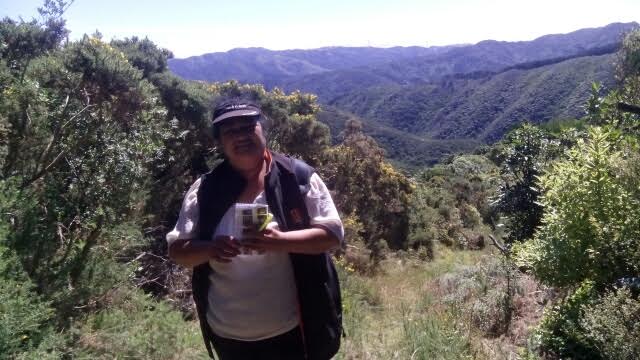Avalon Intermediate School- Joan Makisi

2018 | Conservation and Ecological Restoration and Management at Zealandia
School: Avalon Intermediate School
Host: Zealandia - Karori Santctuary Trust
Region: Wellington
Avalon Intermediate believes that science should be a major part of a rich curriculum. The school has found that science engages students as they learn about the world around them within real, interesting and relevant contexts. The school wants to expand the wealth of opportunities for teaching and learning with links to the arts, technology, literacy and numeracy. A focus of Avalon’s annual planning has been to develop a culturally responsive culture across the school, and they believe that science is a way to integrate cultural practices and beliefs into the school curriculum. It is important for students to be scientifically literate so they can make informed decisions about a range of issues that they will be confronted with in the future. Learning about notions of community, conservation, sustainability and whenuatanga will give them a good start.
Joan has had 20 years primary teaching experience. She has taught children from a wide range of abilities, skills and cultural backgrounds. She has a passion for teaching and learning through the arts. One of her strengths is acknowledging and developing the cultural values that students bring to their learning. She values the importance of providing rich learning opportunities for students to engage and learn in science.
Joan has been hosted by Anastasia Turnbull – Manager of Learning and Engagement and Dr Danielle Shanahan – Manager of Conservation, Research, Learning and Experience at Zealandia – Karori Sanctuary Trust in Wellington. Her placement has involved attending education tours and a bio-blitz for primary, intermediate and secondary school students. She has also attended takahē and stream studies with secondary students. This has given her a base of scientific knowledge of the effects of monitoring and management systems on diverse habitat ecosystems and plant and animal species groups. This has enabled her to observe engagement in the Nature of Science as knowledge is disseminated, scaffolded and discussed by individuals within different groups of the sanctuary.
A highlight for Joan during her placement was her field trip to Wairarapa Moana in Wairarapa where two varieties of freshwater mussels (kākahi) are located. Joan participated in an investigation to find samples of kākahi for a photo shoot for promotional purposes of the species. Joan observed how the kakahi was able to filter the water in order to feed itself through a method called filtering. She had the opportunity to work alongside researchers to gather samples and estimate the abundance of kākahi in the Wairarapa Moana. This information will help with the re-location plan of the species at Zealandia
Joan conducted an independent investigation to find out the influential factors that impacted on bird species on two separate areas of the sanctuary. The process enabled her develop her understanding of biodiversity practices and science driven research.
The Science Teaching Leadership Programme has provided Joan with the opportunity to participate in a memorable and rewarding professional development opportunity. She is looking forward to applying this learning to Avalon Intermediate. She would like to thank Royal Society Te Apārangi, Dr Danielle Shanahan, Anastasia Turnbull and the Learning and Engagement and the Conservation, Research, Learning and Experience teams at Zealandia Karori Sanctuary Trust, and Avalon Intermediate School for investing in her.
